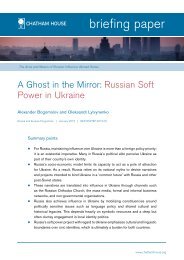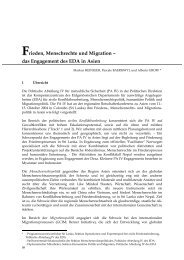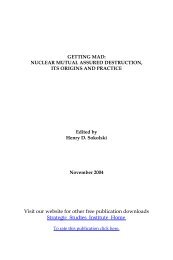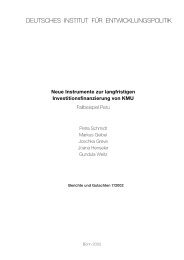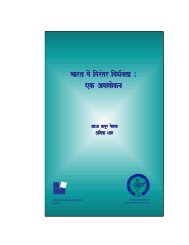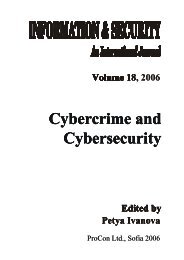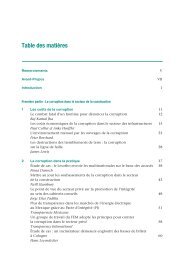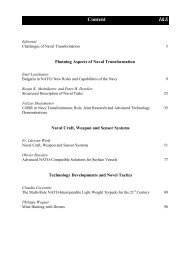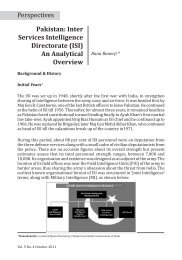Andreas Stamm Eva Dantas Doris Fischer Sunayana ... - ETH Zürich
Andreas Stamm Eva Dantas Doris Fischer Sunayana ... - ETH Zürich
Andreas Stamm Eva Dantas Doris Fischer Sunayana ... - ETH Zürich
You also want an ePaper? Increase the reach of your titles
YUMPU automatically turns print PDFs into web optimized ePapers that Google loves.
Sustainability-oriented innovation systems<br />
− How significant (in terms of capabilities and capacities) is the technological knowledge<br />
built up through these policies?<br />
− What has happened with embodied and disembodied knowledge in cases where technology<br />
missions have been discontinued or political ruptures have occurred?<br />
− To what extent are knowledge clusters contributing to the formation or strengthening<br />
of SoIS in the anchor countries, as indicated in the examples above?<br />
− Can they be made functional through policy intervention?<br />
Building technological capabilities under conditions of globalisation<br />
Early industrialisation in today’s most advanced countries and the related build-up of<br />
technological expertise was accompanied by rather strong government intervention, including<br />
tariff protection for domestic markets. Today’s catching-up processes are taking<br />
place under conditions of a regulated globalisation, and this implies a different and narrowed<br />
scope for policy making. Some aspects have clearly to be seen as disadvantages for<br />
current technological catching-up processes:<br />
− Local efforts geared to technological upgrading and innovation encounter fierce competition<br />
in global markets, affecting international as well as local markets.<br />
− Market liberalisation today restricts policies designed for selective infant industry protection<br />
or market reservation.<br />
− International regulations affect the ways in which technological knowledge can be<br />
accessed, e.g. stricter Intellectual Property Rights (IPR) protection regimes severely<br />
restrict options for reverse engineering.<br />
− Instruments of industrial policy, common in many countries in the past, have today<br />
largely been ruled out, including measures designed to link local companies to FDI on<br />
the basis of local content requirements.<br />
On the other hand, globalisation is also opening up new opportunities for catching-up<br />
countries, which were available for early movers:<br />
− Technology development and innovation can fall back on huge stocks of available<br />
information and knowledge, partly in the public domain and accessible through Information<br />
and Communication Technology / Technologies (ICT).<br />
− Technology corporations are increasingly relocating knowledge-intensive activities to<br />
some developing countries.<br />
− Organisations and companies in developing countries have the opportunity to use<br />
global research networks to access international know-how and merge it with local<br />
knowledge.<br />
− Developing countries can learn from the Organisation for Economic Co-operation and<br />
Development (OECD) countries regarding effective innovation policies and efforts to<br />
abbreviate learning processes and minimise the risks of costly policy failures.<br />
German Development Institute / Deutsches Institut für Entwicklungspolitik (DIE) 5




